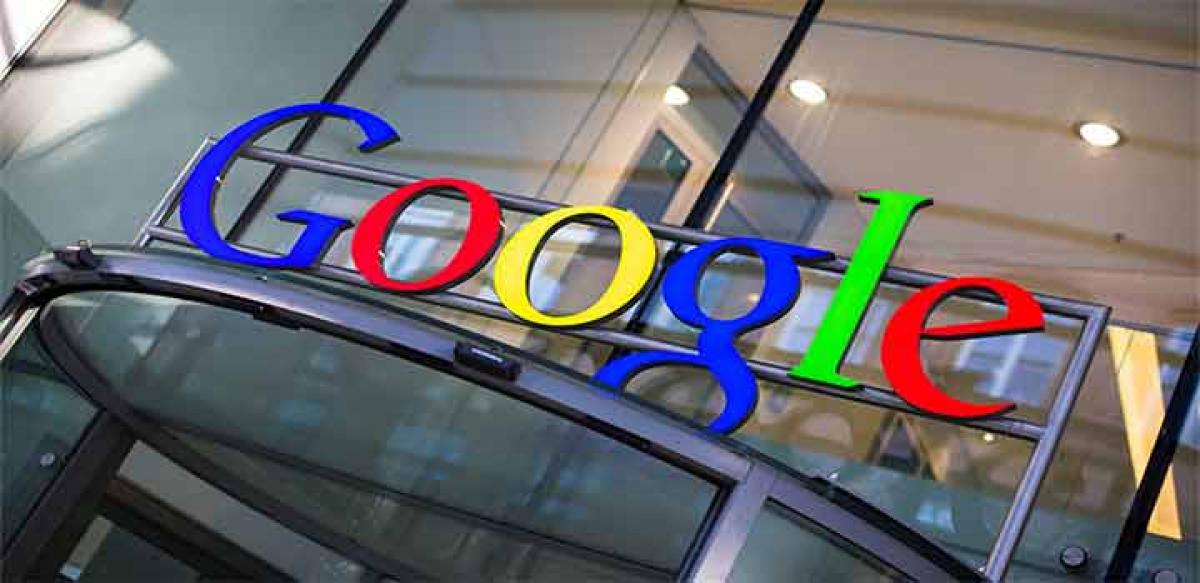Live
- BJP urges EC to stop Cong’s ‘Guarantee Cards’ campaign aimed to 'induce voters'
- Congress cheated Madigas: Dr. RS Praveen Kumar
- CBDT signs record 125 pacts to ease tax payments by big multinational firms
- Kamal Nath accuses BJP of ‘threatening’ Congress leaders in Chhindwara
- Odisha: BJP, BJD allege violation of MCC
- PM Modi lands in Guwahati to kickstart poll campaign
- ‘100 day action plan’ is PM Modi’s signature style for setting goals and meeting targets
- BJP will change the Constitution if they come to power again, says Priyanka Gandhi
- BJP-led NDA to cross 390-mark in Lok Sabha polls, predicts India TV-CNX survey
- Haier launches new TV series in four sizes in India
Just In

We discussed about ad blockers in the previous column and how it may affect websites like Google with advertisements as major source of income, if they fail to advance their ways of ad publishing. Well, Google has reacted to the stimulus.
.jpg)
While Apple and Facebook are busy making strategies to curb Google’s monopoly in ad revenues, Google is coming up with ‘Customer Match’ to attract more advertisers, at a higher price
We discussed about ad blockers in the previous column and how it may affect websites like Google with advertisements as major source of income, if they fail to advance their ways of ad publishing. Well, Google has reacted to the stimulus.
A recent article in The Wall Street Journal reads that Google is laying roadmaps to allow its advertisers to have the privilege of tapping into one of the most profitable types of targeting ads - through email addresses.
Google is soon rolling out a new tool ‘Customer Match’, which would give the advertisers access to a list of email addresses to target the right audience across Google services.
The tool works on a very simple algorithm. All the people, who sign up for a loyalty programme, or give away their email addresses to a retailer, would be targeted through Customer Match.
While advertisers may be very happy thinking they could create personalised profiles of individuals and hence achieve the highest state of permission marketing; to their disappointment, Google would make the emails anonymous in the tool.
But the beneficiaries would still be getting lists of consumers with general consuming habits on YouTube and search histories on Google to target ads with. While this seems similar to Facebook’s advertising behaviour, it is far more potential than Facebook.
It is very intelligent on Google’s part to come up with this new tool by utilising the monopoly it has created in fields of streaming and search engine to the optimum level. And this clearly shows how the world is switching from interrupting marketing to permission marketing.
At a point in time when Apple and Facebook are planning moves to complicate Google’s strength on the web, this move by Google can prove to be a game changer. As discussed earlier, Apple is doing it by allowing ad blocking softwares on the recently rolled out operating system iOS 9, only accessible through Apple’s Safari web browser, opposing Google Chrome.
Facebook has created its own virtual sphere on the web and mobile within its social network, besides expanding its diversity of content ranging from videos to news articles, all at the newsfeed for users’ disposal.
By inducing permission marketing through email addresses, like Twitter does, Google would be able to charge its advertisers more than usual as these ads would be niche targeted, just as they should be.
However, the tapping of email addresses and search results raises the question of privacy. Thought Google deems that the email addresses would be anonymised, the segregation of email addresses based on common consumer behaviour is indirectly intruding into a user’s privacy.
However, Google calls the Customer Match a ‘privacy-safe’ product; this might not crush the users’ concerns who consider ad targeting the reason for advertisers becoming more specific.
By:Tushar Kalawatia

© 2024 Hyderabad Media House Limited/The Hans India. All rights reserved. Powered by hocalwire.com







